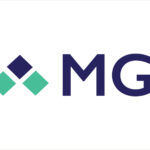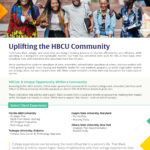Approach change with empathy and compassion to lessen any potential emotional impacts.
The human aspect of change is real and sometimes disruptive and difficult. It’s critical to understand that organizational change will impact people differently. Even what might seem like a small adjustment to you or me might feel significant to someone else. While we cannot anticipate how individuals are going to perceive organizational changes, we can approach the adjustments with sensitivity, empathy and respect, knowing that organizational review recommendations can be life-changing for some.
“Having worked in leadership positions within education for many years, my colleagues and I have experienced institutional and organizational change within our careers, both in and outside of higher education, and as advisors. We approach our work of guiding change with the perspective of having been there.” – Kasey Price
There’s an art to balancing the very real human element to organizational change in preparing educational institutions to be poised for future success. Understanding and anticipating human emotions are usually not part of an organizational review report and roadmap for future planning. However, this is certainly a part of the conversations we have with people about organizational change.
Prepare leaders for change
Many new leaders are brought into their positions because an organization wants to make changes for greater effectiveness and efficiency. Hiring committees are often looking for candidates through the interview process that are willing to lead change, disrupt the status quo, and create pathways for future success. New leaders often go in on day one with an expectation to create significant organizational change for measurable improvements.
We also work with leaders on organizational reviews who are long-term leaders on the campus they are looking to review. Many times, these leaders are seeking a fresh perspective of how their institution can be improved for greater student success and to be best positioned for future strength.
In both cases, the best, most effective leaders embrace informed, data-driven organizational effectiveness reviews and implementation plans as a positive direction for their organizations and students to succeed in the future.
Embrace inclusive leadership
Transformational change in education can only occur with strong leadership on campus to ensure that all stakeholders of the campus — board, faculty, staff, students, families, local community and industry — are involved in the beginning. As a result, the final reports that consider the implications of recommendations that best represent the various groups within the larger campus community.
A strong leadership helps guide an organizational effectiveness strategy to ensure that it’s actionable and relevant to the needs of everyone involved and does not sit on a shelf.
Start with the “why”
While working in higher education administration, I always helped my staff or students envision the end goal of a project, providing the “why” of what we’re doing. It is easier to help people embrace organizational change when they can see the benefit of what we’re trying to achieve in the end. Involving people in the process early to understand where we’re heading is critical to help people take ownership and, ultimately, embrace change.
Create clear roadmaps
To help guide organizations through the change process, we are often asked to help make the changes recommended in our reports. In an organizational review process, we make recommendations, but whether those recommendations are implemented is up to the leader of the organization. Our job is to help identify actionable solutions to create change in a

The MGT team is committed to helping our clients succeed.
specific unit or explain how we would strategically address a variety of scenarios. Through that process, we delve into the deeper layers of organizations and departments and listen to people’s feedback. We help ensure that the process is inclusive and respectful of the emotional nuances that impact successful outcomes.
Organizations benefit from MGT Education’s partnership because they gain the advice of trusted advisors and a team of individuals who are national experts conducting organizational effectiveness studies across the country. In the most thoughtful and sincere way, we help leaders to navigate and achieve their goals while avoiding some of the pitfalls, based on having been directly involved in similar situations.
Major organizational is not easy for anyone, but in the end, you will have a refreshed, more effective organization by envisioning and working towards the future thoughtfully. Preparing an organization for a strong future is a constant evolution of assessment, and then reassessment. We are continually going back to leaders within an organization to ask: “Is this working for your students, faculty, staff, and community in a measurable, impactful way?” Organizations should be constantly adjusting and changing to ensure they are positioned for future success while meeting the needs of their students and lifting communities for social and economic benefit. This critical work requires the bold vision of a dedicated leader and support and buy-in from the campus community.










